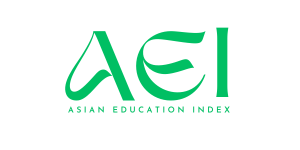Tracking the future path of HIV prevalence among individuals aged 15-49 years in Sierra Leone using Holt’s linear method
DOI:
https://doi.org/10.62480/tjms.2024.vol34.pp51-57Keywords:
Exponential smoothing, Forecasting, HIV prevalenceAbstract
This study uses annual time series data of HIV prevalence among individuals aged 15-49 years for Sierra Leone from 1990 to 2020 to predict future trends of HIV prevalence over the period 2021 to 2030. The study utilizes Holt’s linear exponential smoothing model. The optimal values of smoothing constants α and β are 0.9 and 0.1 respectively based on minimum MSE. The results of the study indicate that annual HIV prevalence among individuals aged 15-49 years will remain constant at around 1.5% throughout the out of sample period. Therefore, we encourage authorities to scale up HIV diagnosis, prevention and treatment especially among key populations.
References
Statistics Sierra Leone - StatsSL, ICF. Sierra Leone Demographic and Health Survey 2019.
Freetown/Sierra Leone: StatsSL/ICF; 2020.
UNAIDS (2020). Country progress report - Sierra Leone: Global AIDS monitoring 2020. United
Nations Programme on HIV/AIDS.
Duah Dwomoh., Issata Wurie., Yvonne Harding., Kojo Mensah Sedzro., Joseph Kandeh.,
Henry Tagoe., Christabel Addo., Daniel Kojo Arhinful., Abdul Rahman Cherinoh Sessay., James
Lahai Kamara., Kemoh Mansaray and William Kwabena Ampofo (2023). Estimating prevalence and
modelling correlates of HIV test positivity among female sex workers, men who have sex with men,
people who inject drugs, transgender people and prison inmates in Sierra Leone, 2021, AIDS
Research and Therapy (2023) 20:70 https://doi.org/10.1186/s12981-023-00566-4
Welfare G (2004). Sierra Leone. Time. 2004;3(April 2011):2003–4.
World Health Organization & UNAIDS (2017). WHO, UNAIDS statement on HIV testing services:
new opportunities and ongoing challenges. 2017;2. http://www.unaid s.org/sites /defau lt/files /media
_asset /2017_WHOUNAID S_state ment_HIV-testi ng-servi ces_en.pdf.
Witzel TC, Rodger AJ, Burns FM, Rhodes T & Weatherburn P (2016). HIV self-testing among men
who have sex with men (MSM) in the UK : a qualitative study of barriers and facilitators,
intervention preferences and perceived impacts. PLoS ONE. 2016; 11:e0162713.
Catania JA, Dolcini MM, Harper GW, Dowhower DP, Dolcini-Catania LG, Towner SL, Timmons
A, Motley DN & Tyler DH (2015). Bridging barriers to clinicbased HIV testing with new
technology: translating self-implemented testing for African American youth. Transl Behav Med.
; 5:372–83.
On G. HIV testing services HIV self-testing and partner. 2016.
Downloads
Published
Issue
Section
License

This work is licensed under a Creative Commons Attribution-NonCommercial 4.0 International License.
User Rights
Under the Creative Commons Attribution-NonCommercial 4.0 International (CC-BY-NC), the author (s) and users are free to share (copy, distribute and transmit the contribution).
Rights of Authors
Authors retain the following rights:
1. Copyright and other proprietary rights relating to the article, such as patent rights,
2. the right to use the substance of the article in future works, including lectures and books,
3. the right to reproduce the article for own purposes, provided the copies are not offered for sale,
4. the right to self-archive the article.














